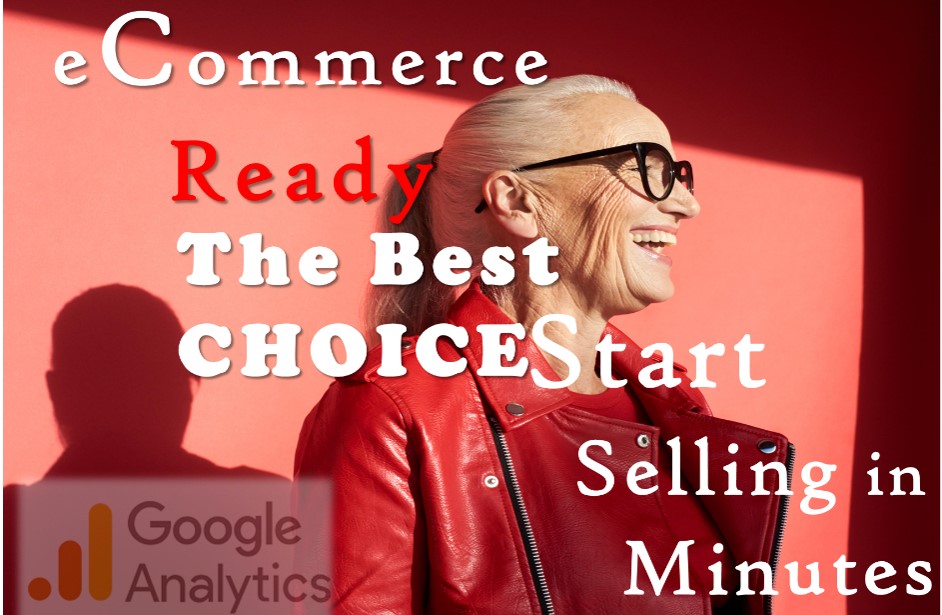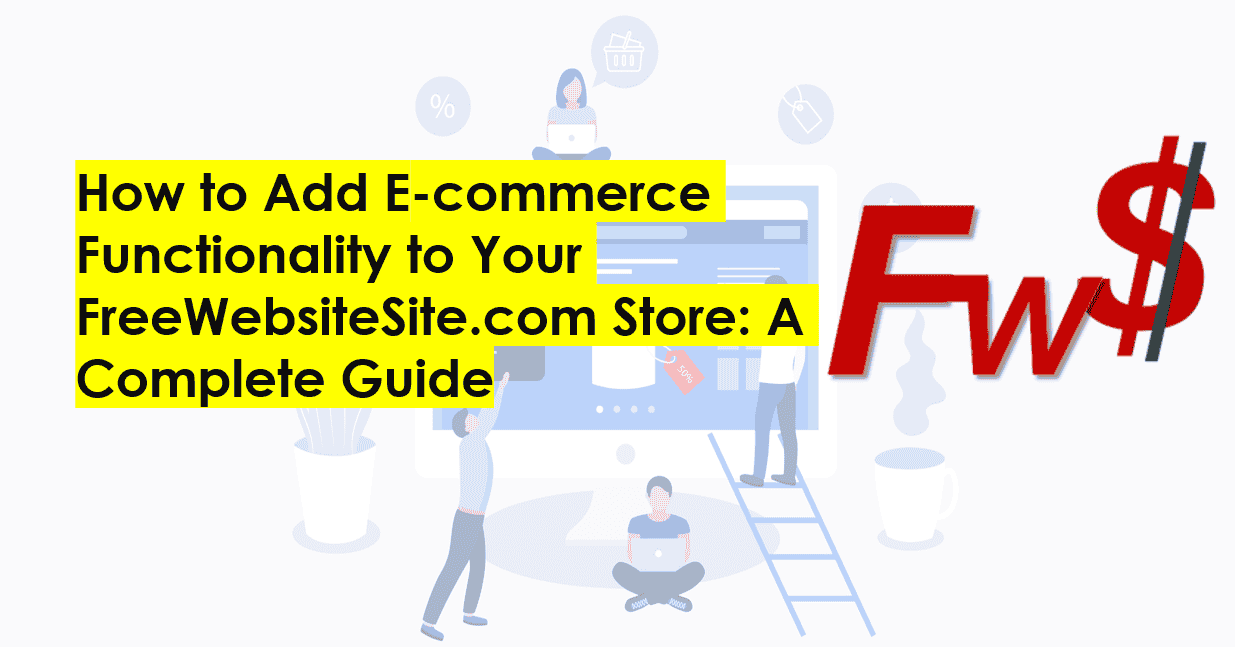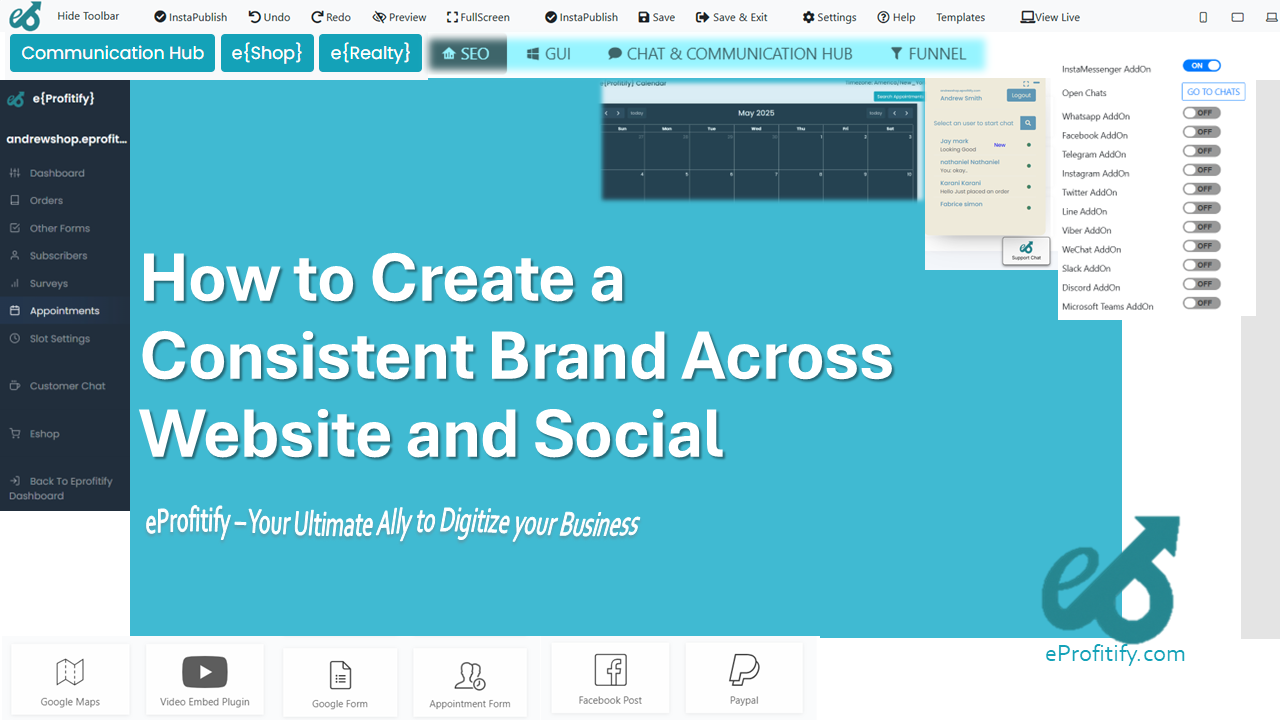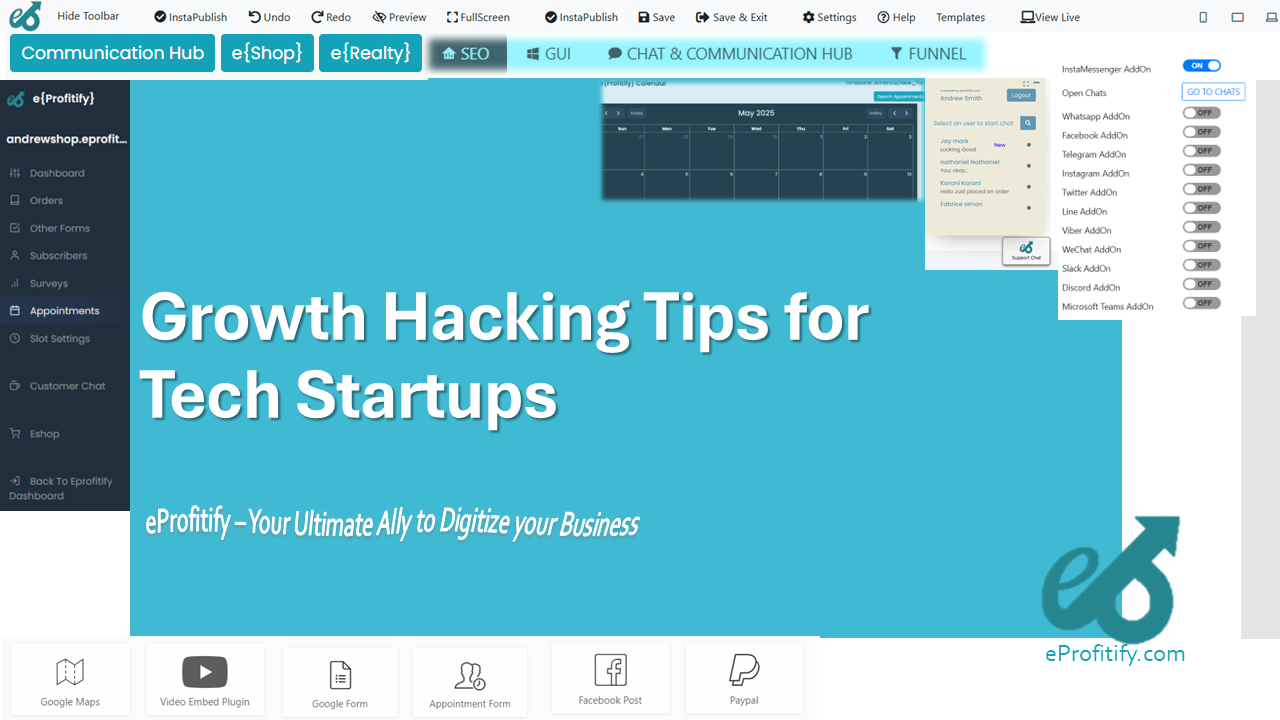Should You Have a Co-Founder? Pros and Cons
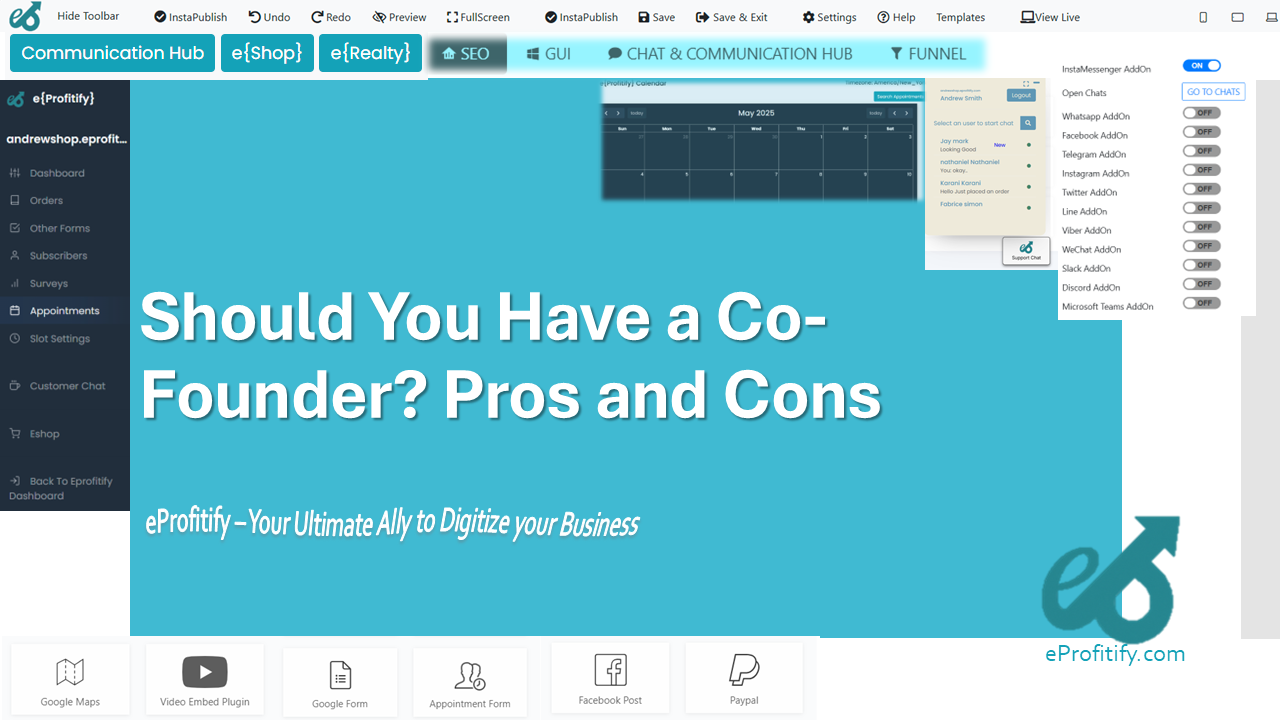
Should You Have a Co-Founder? Pros, Cons, and How eProfitify Can Help
Starting a business is a thrilling yet daunting journey. One of the most critical early decisions entrepreneurs face is whether to go solo or partner with a co-founder. This choice can shape the trajectory of your venture, impacting everything from day-to-day operations to long-term scalability. In this article, we’ll explore the pros and cons of having a co-founder and highlight how tools like eProfitify—a leading website publishing and management platform—can empower founders, whether they choose to collaborate or go it alone.
The Case for Having a Co-Founder
1. Shared Workload and Complementary Skills
Launching a business requires juggling countless tasks, from product development to marketing. A co-founder can分担 the workload, allowing you to focus on your strengths. For instance, a tech-savvy founder might handle product development, while a partner manages sales and operations. According to a Startup Genome Report, startups with multiple founders are 2.3x more likely to scale successfully than solo ventures. Diverse skill sets also foster innovation, as differing perspectives lead to creative problem-solving.
2. Emotional Support and Motivation
The entrepreneurial journey is riddled with highs and lows. A co-founder provides emotional backing during setbacks, fostering resilience. Research by Harvard Business Review notes that founders with partners report lower stress levels and higher morale, which is critical during the grueling early stages of a startup.
3. Better Access to Funding
Investors often favor teams over solo founders. Data from Crunchbase reveals that 70% of funded startups have multiple founders, as venture capitalists perceive teams as more capable of executing complex visions. Co-founders also bring combined networks, increasing opportunities for partnerships and customer acquisition.
4. Accountability and Risk Mitigation
Co-founders hold each other accountable, ensuring deadlines and goals are met. Should one founder face personal challenges, the other can step in, reducing operational risks.
The Challenges of Having a Co-Founder
1. Potential for Conflict
Disagreements over vision, equity, or strategy can derail progress. A Harvard Business School study found that 65% of startup failures stem from co-founder conflicts. Clear communication and legal agreements are essential to mitigate this risk.
2. Shared Ownership and Equity Dilution
Bringing on a co-founder means splitting equity, which can lead to tension during fundraising or exits. Founders must negotiate equity splits thoughtfully—10% of startups fail due to unfair ownership structures, per Failory.
3. Slower Decision-Making
Consensus-building can delay critical decisions. While collaboration has merits, urgency-dependent industries like tech may suffer from bottlenecks.
4. Financial and Legal Complexities
If a co-founder exits prematurely, untangling equity stakes or responsibilities can strain the business. Legal frameworks like vesting schedules are crucial but add complexity.
How eProfitify Bridges the Gap for Founders
Whether you have a co-founder or not, eProfitify offers tools to streamline operations. As a comprehensive website publishing and management platform, its features empower founders to focus on growth:
- Instant Messaging & Collaboration: Facilitate real-time communication between co-founders, remote teams, or clients, reducing misunderstandings.
- Appointment Management: Automate scheduling for meetings, customer consultations, or investor pitches, saving time.
- Ecommerce Integration: Launch and manage online stores effortlessly, even without technical expertise.
- CRM Tools: Track customer interactions, segment audiences, and automate follow-ups to boost retention.
- Analytics Dashboard: Make data-driven decisions with insights into sales, traffic, and user behavior.
For solo founders, eProfitify compensates for the lack of a partner by automating tasks traditionally handled by a team. Teams, meanwhile, leverage its tools to enhance coordination and efficiency.
Conclusion
Choosing a co-founder is a deeply personal decision. While partnerships offer skill diversity and morale boosts, they also introduce risks like conflict and equity splits. Tools like eProfitify mitigate these challenges by streamlining communication, project management, and customer engagement—whether you’re flying solo or collaborating.
Before deciding, assess your strengths, risk tolerance, and long-term vision. Remember, success hinges not just on your team structure, but on your ability to adapt and leverage resources effectively. With platforms like eProfitify democratizing access to enterprise-grade tools, the path to entrepreneurial success has never been more accessible.

